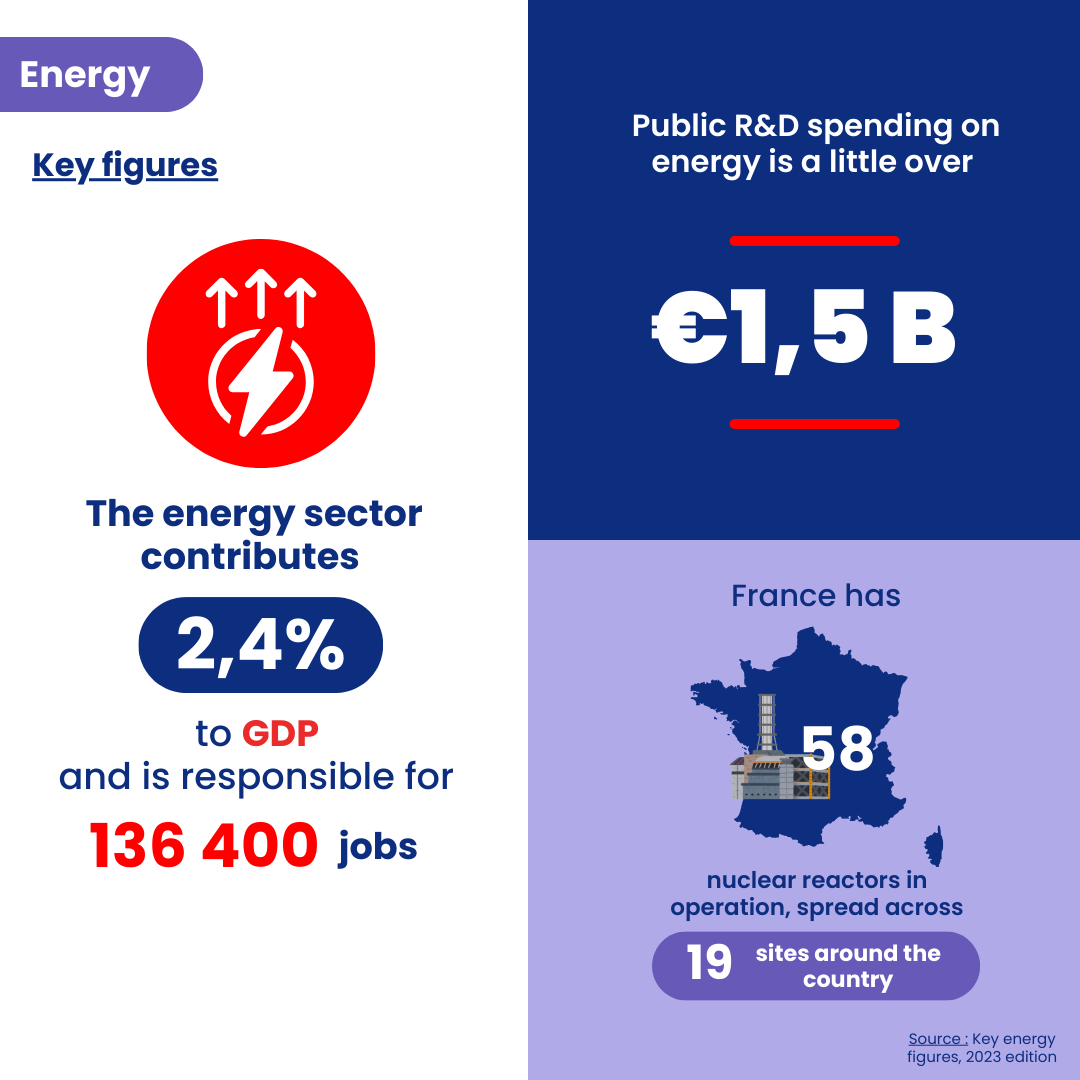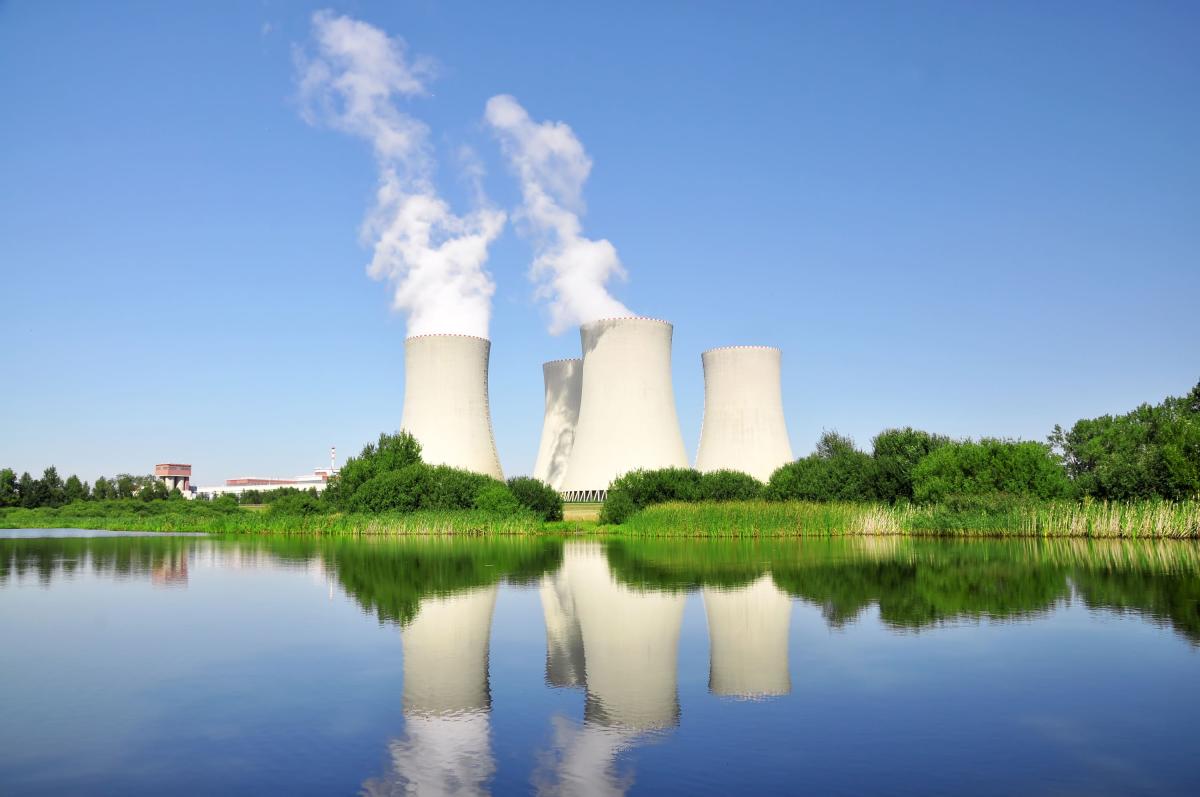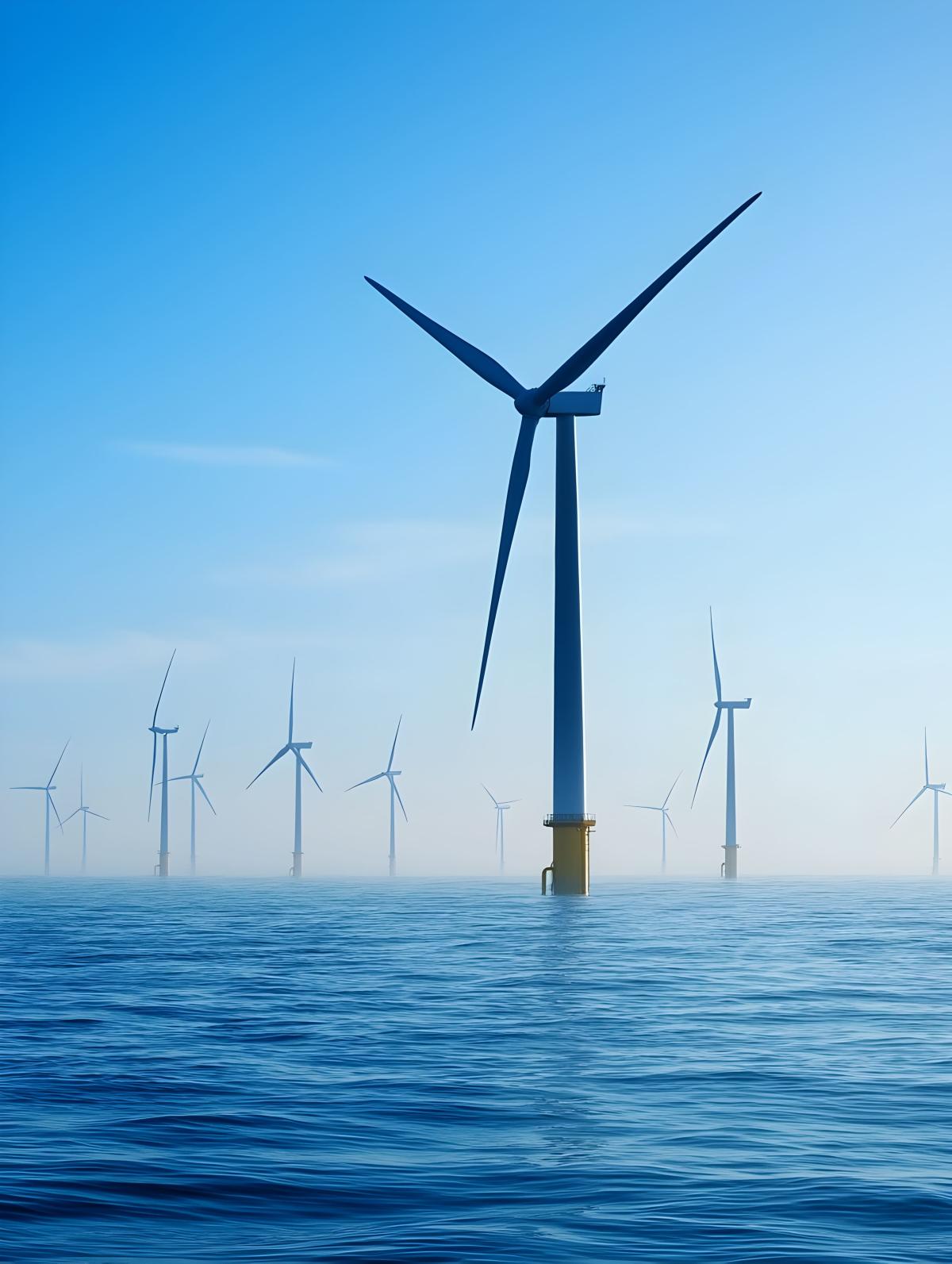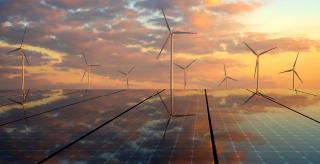France – a leader in global energy

A global nuclear power
France is the world’s second largest producer of nuclear energy, just behind the United States. With close to 70% of its electricity sourced from the nuclear industry, the country is second in the table of European countries in terms of the production of the most carbon-free electricity. Furthermore, the Arenh mechanism enables France to guarantee an electricity price of just 42 euros per megawatt hour (MWh) for the industry sector. This rate, which is lower than that available in Germany, Poland and even Spain, further strengthens the country’s competitiveness.
Home to companies such as EDF and Orano, leaders in the construction/operation of nuclear plants and the nuclear fuel cycle respectively, the French nuclear industry has a dynamic industrial network of sub-contractors who are ramping up their operations ahead of the construction of future EPR2 reactors. These include leading groups within the construction sector (Vinci, Eiffage, Bouygues etc), renowned engineering companies (Assystem, Alten etc), as well as an extensive ecosystem of SMEs and larger businesses (Groupe M, CSTI Group etc).
“The French nuclear market is experiencing a strong revival and is valued at several billion euros per year. In 2024 alone, EDF invested close to 5 billion euros in the operation and maintenance of its 18 nuclear power stations in France.”
Étude Xerfi, New perspectives for the nuclear industry, November 2024.
Primary energy production in 2021:
7%: Renewable electrical energies
17%: Renewable thermal energy and waste
75%: Nuclear energy
< 1%: Fossil fuels (oil and gas)
Source: Key energy figures, 2022 edition

Globally renowned research centres
Home to highly respected companies such as EDF, Total Energies and Engie, France is at the cutting-edge of innovation in terms of renewable energy, nuclear power and energy transition.
Courses run at prestigious higher education schools – such as Mines Paris and Polytechnique - as well as numerous research centres – support France’s role as a world leader in the energy sector. As examples, the French Alternative Energies and Atomic Energy Commission (CEA) is a leading player in nuclear research and renewable energies, while the IFP Énergies Nouvelles (IFPEN) carries out research into energy efficiency, biofuels and carbon capture and storage.
In terms of innovation in the energy sector, France is very much at the forefront thanks to emblematic projects such as the new-generation EPR nuclear reactor and ITER, an international nuclear fusion project based at Cadarache (in the Provence-Alpes-Côte d'Azur region). The latter is considered to be a revolutionary breakthrough for world energy. The French State is investing massively in the energy sector as a whole through plans such as France 2030, with the aim of developing green hydrogen, offshore wind power, and other renewable technologies.
An extensive and diversified sector
Paris, Lyon, Grenoble, Nice and Saint-Nazaire are cities synonymous with the diversity and extent of the French energy sector, through their combination of industrial expertise, innovation and research.
Paris is the decision-making and strategic centre for France’s energy sector. The French capital hosts the headquarters of major companies such as EDF, Engie, and TotalEnergies, as well as key institutions including the International Energy Agency. Every year, Paris also hosts the World Nuclear Exhibition, a major international event for the nuclear industry, which brings together leading players in the sector to present their latest technological and nuclear safety innovations.
Lyon is a major centre for energy transition and renewable energy. The city is home to numerous companies specialising in energy efficiency and green technologies. It also hosts trade shows such as BePOSITIVE and Pollutec, attracting experts from around the world.
Grenoble is a centre for energy innovation, with a strong concentration of research laboratories including the CEA and graduate schools such as the Institut Polytechnique de Grenoble (Grenoble INP). The city is also renowned for its advances in energy storage technologies, intelligent electricity networks and energy transition.

Saint-Nazaire is home to the largest offshore wind farm in France. Officially opened on 22 September 2022, its 80 wind turbines producing a total of 480MW provide electricity equivalent to the annual consumption of 700,000 people and up to 20% of the total electricity consumption of the Loire-Atlantique département.
Nice plays a central role in France’s energy ecosystem, acting as a key hub for advanced environmental solutions. The Nice EcoVallée technopole is an innovation cluster dedicated to sustainable development and green technologies, bringing together companies, start-ups and research centres. Thanks to its modern infrastructures and public-private partnerships, it is able to focus on energy transition, while at the same time stimulating innovation and regional competitiveness.



